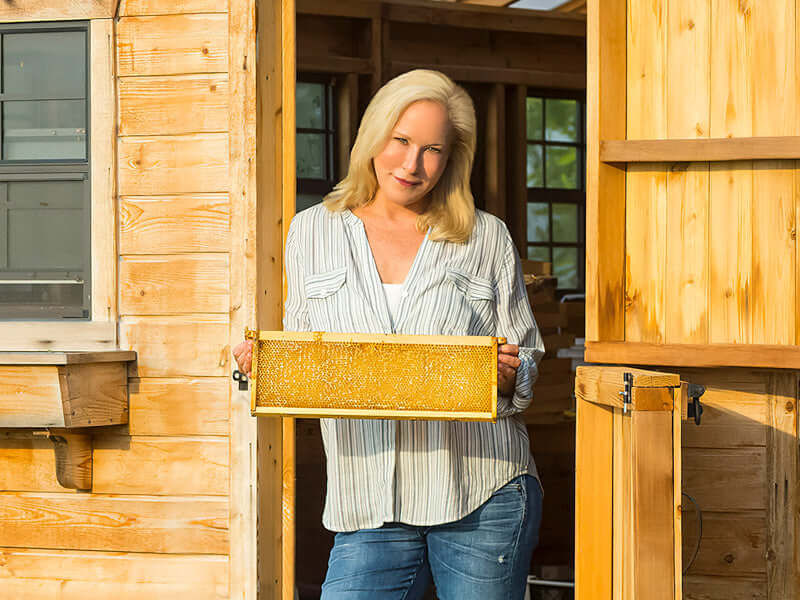The term "standard of identity" plays a vital role in the food industry. It refers to the mandatory requirements set by a governing body to define what a food product must contain in order to be marketed under a specific name. This segment serves as the foundation for establishing and upholding rules that govern authenticity across all aspects of the product. With these standards in place, consumers can trust that the products they purchase meet the highest quality and purity standards. By adhering to these rules, members of the industry contribute to the creation of genuine and exceptional products that bring joy and satisfaction to people's lives.

What does “Standard of Identity” mean?
During my research on standard of identity in the honey industry, I noticed a significant overlap between organizations like the National Honey Board and FDA. The Board states that "In 2006, multiple honey industry organizations urged the FDA to establish a U.S. Standard of Identity for honey." Let's delve deeper into this exciting topic!
Back in 2011, the FDA turned down the petition. They pointed out that according to Webster's New World College dictionary, honey is described as a "thick, sweet, syrupy substance that bees make as food from the nectar of flowers and store in honeycombs." Based on this definition, the FDA concluded that it aligns perfectly with how people commonly use the term "honey."
Honey is a delicious and nutritious substance that has been used for thousands of years. It is no wonder that people were outraged when the FDA turned down a petition to declare honey not living up to a new standard of identity as artificial back in 2011. However, we need to take a closer look at the facts of the matter to understand why the FDA made this decision.
The definition of honey is clear in the Webster's New World College dictionary, stating that honey is a "thick, sweet, syrupy substance that bees make as food from the nectar of flowers and store in honeycombs." Therefore, the FDA concluded that it aligns perfectly with how people commonly use the term "honey." This may seem like a straightforward explanation, but there is more to it than meets the eye.

One of the reasons people thought there may be artificial ingredients in honey was due to the use of high fructose corn syrup (HFCS) in some commercial honey brands. HFCS is a sweetener that is less expensive than pure honey, making it an attractive option for some manufacturers. However, the FDA has regulations in place for honey labeling and requires the disclosure of added sweeteners like HFCS. Therefore, even if a honey product contains HFCS, it is not considered artificial as long as it is labeled correctly.
Another misconception is that honey is filtered to the point where it becomes artificial. This is not accurate. While some commercial honey brands may filter their products to remove debris like bee particles and pollen, this does not render the honey artificial. The filtering process does not change the honey's composition or remove any essential nutrients, and it is still made entirely by bees.
Furthermore, not all honey products are regulated the same way. The FDA only has jurisdiction over honey products that are sold across state lines. Honey that is produced and sold within the same state may be subject to different regulations or none at all. As a result, some local honey products may be considered artificial by local authorities but not by the FDA.
Keeping it Real
Since 2007, various industry groups or individuals have worked to establish a standard of identity at the state level. Several states have adopted a standard. Florida was the first, followed by California and others since. However, the language is not always the same and some believe this could cause problems.

Live up to a standard of identity, even if the government won’t
I’m old fashioned. I like to grow my own food when I can. I like to go to the butcher when I want fresh meat especially of the organic variety. If I can’t grow it, I buy organic whenever I can.
Buy real chocolate. Eat real honey. Grow your own real food, from real seeds. This may sound like living in the past. In reality, it may be what promotes your ability to live well into the future.
the FDA's decision to deny the petition to declare honey as artificial was based on the definition of honey in the Webster's New World College dictionary. Although there are some commercial honey products that contain HFCS or undergo a filtration process, as long as they are labeled correctly and do not deviate from the dictionary definition of honey, they are not considered artificial. It is important to educate ourselves on the facts before making assumptions and spreading misinformation. Honey is a natural and wholesome food that has been enjoyed by many for centuries, and it is critical that we appreciate it for what it is.
Want to read more?











